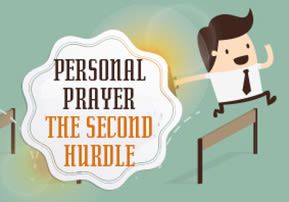
Personal Prayer – the Second Hurdle
We all need a big helping hand from Hashem; we can't possibly defeat the evil inclination and overcome years of dysfunctional thinking and deeply engrained habits on our own...

What in the world will I talk about for an hour?
Once you get over the first hurdle and make time for personal prayer, you need to figure out what you’ll say during your daily appointment with Hashem. While personal prayer is personal and the topics and format can vary from person to person, Rav Shalom Arush recommends a general three part format.
Thank You, Hashem
We have so much for which we can thank our beloved Father and King. You can thank Him for your health, spouse, children, home, job, Torah lessons, teachers, parents and much more. The more you thank Hashem and the more detailed the thanks the better.
You’ll begin to appreciate these things on a deeper level rather than taking them for granted. This will lead to an enhanced general level of happiness and closeness to Hashem. Moreover you will come to realize  that all you have is a gift. This fosters a sense of humility preventing a feeling of entitlement and belief that what you have is due to your own efforts and strength. This type of arrogance is highly damaging as it severs oneself from Hashem.
that all you have is a gift. This fosters a sense of humility preventing a feeling of entitlement and belief that what you have is due to your own efforts and strength. This type of arrogance is highly damaging as it severs oneself from Hashem.
Rabbi Arush says that thanking Hashem is a matter of basic decency. If someone is constantly bestowing gifts and favors on you, don’t you think the least you can do is to say thank you?
The name for the Jewish people, Yehudim means those who give thanks. This is our national mission. It is a basic part of our job description. Rabbi Avigdor Miller says that Torah true Judaism is based on these words: “I thank you Hashem.” Rebbe Nachman says that the more you thank Hashem, the more he’ll give you to be thankful for.
Judge Yourself Daily
Secondly, we do a daily accounting of everything that we’ve experienced in the past 24 hours. We thank Hashem for all the success we’ve experienced. We then apologize for our negligence and misdeeds and commit to doing better.
Here again Rabbi Arush says this is a matter of basic decency. If you do something to disappoint someone or cause pain don’t you think that you should apologize? When we do sincere repentance with a view towards pleasing someone that we love, this constitutes repentance with love. According to the Gemara this actually transforms our sins into merits.
How would you feel if your son or daughter said “Dad or Mom, I know that my behavior isn’t up to the standards you taught me. I’m truly ashamed and sorry I’m disappointing you and causing you pain. I really want to improve. Can you please forgive me and help me to do better?” What would your reaction be? What do you think Hashem’s reaction will be if you talk to Him in this manner each day?
Ask Hashem to Help You Improve in One Major Area
Rabbi Shalom Arush advises us to pray to Hashem to help us in one specific area. He recommends doing this for 30 minutes a day for at least 90 days. He emphasizes the teaching of our Sages that if you try to seize too much you end up empty handed. This is because your efforts are spread too thin and the overall impact is dissipated. In contrast, the focused and sustained targeting of one goal at a time mobilizes your best efforts and elicits Hashem’s compassionate assistance.
We absolutely need a big helping hand from Hashem. We can’t possibly defeat the evil inclination and overcome years of dysfunctional thinking and deeply ingrained habits on our own.
I recommend that you learn all you can about the area where you are trying to improve and record notes of relevant teachings that you find particularly powerful or inspirational. Use these as the basis for much of your personal prayer. This approach brings down the Torah you learn into your prayers. Rebbe Nachman says that this is particularly gratifying to Hashem.
In Garden of Purity Rabbi Arush says one should study and review the methods that allow him to improve in a given area. The combination of learning and prayer will endow you with the knowledge and tools to improve. He adds that the knowledge of one’s brain changes a person only when it filters down to his heart, otherwise it remains theoretical. Daily personal prayer has the power to drive what’s in the brain so it goes deep into the heart and thereby change a person.
A Virtue Above All Virtues
Judge yourself daily and thank Him for each thing
Forgiveness and compassion Hashem will always bring
Pour out your soul to Him, one hour every day
The other twenty three, be happy come what may
He grants us blessings night and day
Emuna, thanks, repentance – that’s how we should repay
He loves us more than we can conceive
Though we don’t deserve a single thing
With love He sends us troubles, He knows we can endure
Talk to Him, He’ll help you, of that you can be sure
Work on your weaknesses, one issue at a time
Purify and elevate your body, soul, and mind
There’s never ever, room for despair
Need help with a problem? The address is prayer
Connect yourself to Him wherever you may go
When you talk with Hashem, you’re never alone
Rebbe Nachman says personal prayer is a virtue above all virtues and that anyone who does an hour of personal prayer each day will not leave this world without completing his mission and soul correction.
In the merit of our daily sessions of personal prayer may we elevate ourselves and others around us and contribute to Hashem bringing spiritual and material abundance to all Israel.



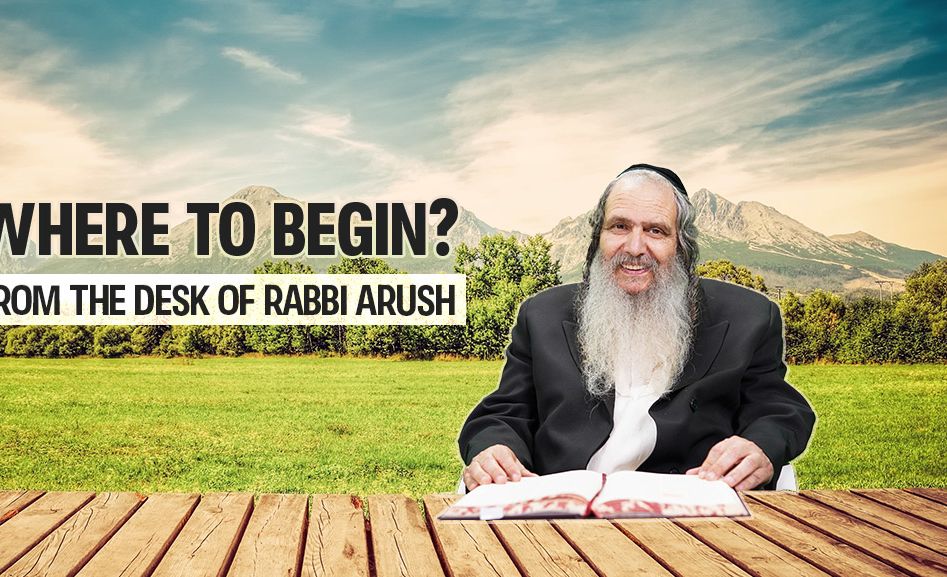

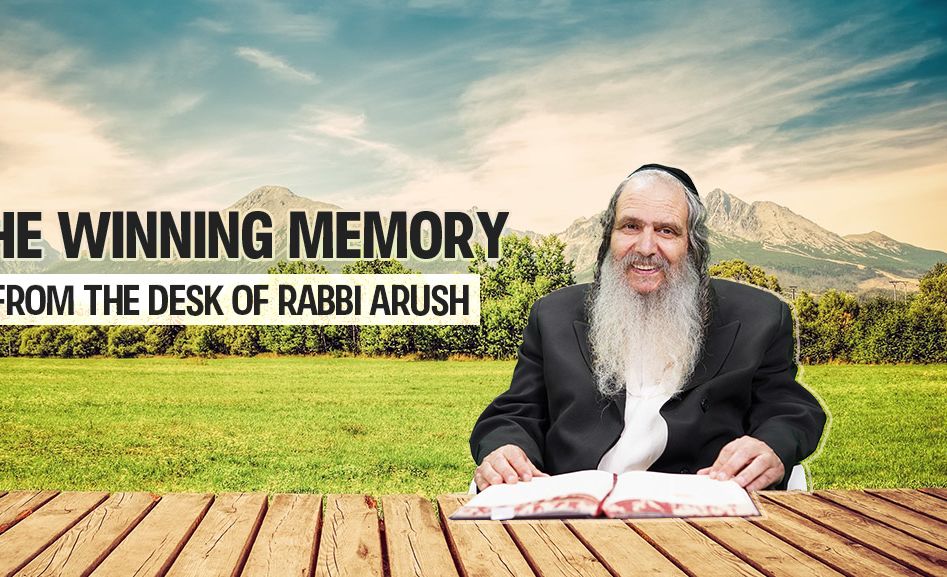

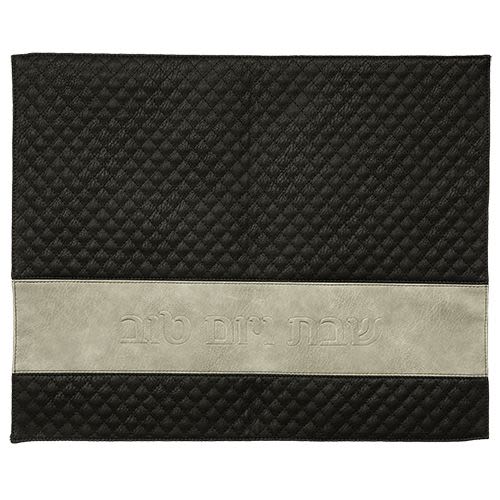



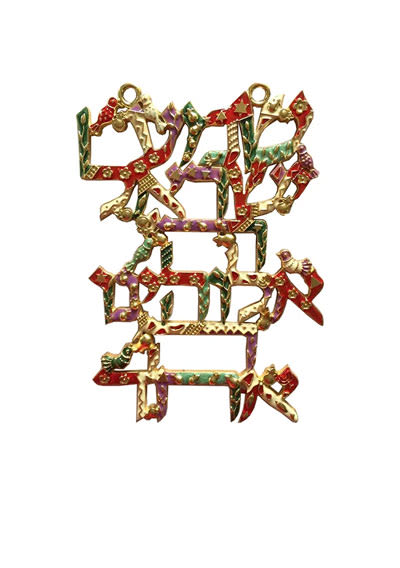
Tell us what you think!
Thank you for your comment!
It will be published after approval by the Editor.